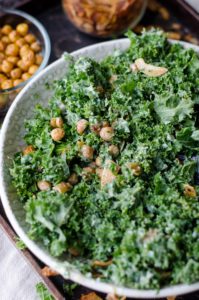Nutrition and Skin Health
Back to BlogWhat we eat affects the health of our skin

Vitamins and minerals are vital for skin health.
Nutrients taken via our diet are essential for our overall health as well as our skin health. There is also a lot of conflicting information in books and on the internet about what is good and what we should be avoiding. The good thing is, you needn’t avoid anything, with the right information you can eat delicious meals that will ensure your skin is nourished and protected.
If you have a diet lacking in the essential vitamins, minerals, amino acids and fatty acids it will show up on your skin. In conjunction if you don’t stay adequately hydrated our skin and physical health will suffer. Whilst we receive our fluids through drinking water, we also get it from our foods.
Vitamins such as A, B, C, E, ubiquinol, riboflavin, niacin, magnesium, zinc and selenium amongst others play a role in maintaining healthy skin function. We can get all our requirements from a healthy balanced diet and it is important that we have a wide variety of nutrients in our diet. Equally you may want to consider boosting your vitamin intake through the ingestion of supplements… however it certainly isn’t necessary.

Have you ever heard that fruit should be avoided due to its sugar content.
We disagree and here’s why…
Fruit contains vitamins minerals, antioxidants, fibre (soluble and insoluble) which has a host of benefits to our heart and our gut health – this means that the release of the sugar into our blood stream is slowed. The sugar is encapsulated within the plant cell walls = slowing the release into our blood stream. Which relates the its glycaemic index.
Fruits also contains vitamin C: this is essential in the essential in the synthesis of collagen a vital protein found within our skin. The deficiency of Vitamin C had a devastating impact many years ago and it was suffered by sailors due to not having fresh fruit and vegetables and living on preserved foods, apart from causing large wounds that wouldn’t heal and bleeding gums it is thought that as many as 2 million people lost their lives as a result of this deficiency.
Vitamin E (Alpha-Tocopherol) is found in seeds, nuts, and vegetable oils helps to maintain healthy skin. Vitamin K from green leafy vegetables, cereal grains and rapeseed oil can assist with wound healing due to its role in blood clotting. Vitamin D assists in keeping our muscles healthy along with keeping our bones working well. Living in the northern hemisphere we don’t often get enough sunshine and when we apply SPF correctly, we stop our bodies ability in synthesising it, hence The Scientific Advisory Committee on Nutrition (SACN) recommend the general population including children should be supplementing their diet by taking 10mg daily.
It is relatively easy to ensure that you get adequate vitamin C throughout the day by ensuring you get an abundant supply spaced over the day. Start by including fruits rich in vitamin C by spreading your portions throughout the day will help, another tip is to squeeze a little lemon and lime juice into your water or over meals and salads.
Drinking fruit in the form of pure fruit juice which has no fibre (meaning your body treats it the same as it would pure sugar) must therefore be taken in moderation as this is high GI. However, if you blend your fruit juice with vegetable juice you can reduce its overall sugar content.

So if you want healthy glowing skin, you must be eating healthily a diet rich in vegetables, fruit, lean proteins, healthy fats and fibre will help you achieve this.
Our favourite type of diet is the Meditterasian diet. A blend of two diets Mediterranean and Asian (predominantly Japan) which is a diet rich in all of the above including the polyphenols and essential fatty acids which promote heart health, skin health and longevity.
It is a well believed that white carbohydrates are bad for us... however it isn't that simple!
Here's why...
White refined carbohydrates when eaten in excess can have a detrimental impact on our health. However it isn’t as black and white as to say you must therefore avoid white carbohydrates. For example rice is a staple eaten in Asia, in many populations where obesity levels are incredibly low. We must look at the portion sizes of the foods that we eat and how we combine these foods.
For example white rice on its own is typically high on the glycemic index (GI), meaning it will raise your blood sugar levels rapidly. A diet high in GI foods is bad for our health and can lead to diabetes and cardiovascular disease. However if you pair that white rice with a serving of fibre rich vegetables the GI value of the meal becomes lower (due to the fibre content, slowing the release of sugar into the blood stream). If you then add a protein such as fish or meat this will again reduce the GI content. Go further an add a fat (which may already be present in the fish if this is oily) or if this is added to the meal in the form of an oil which was used in the cooking process. The GI value of the meal again is reduced and the whole meal in itself becomes healthy.
The same is said for pasta. If it is cooked ‘Al Dente’ meaning not overcooked, the starch is not broken down fully and the GI value of the pasta is low. Add to the meal protein, fibre and fat (i.e. prawns, tomatoes and olive oil) and the meal is low in its GI value and also very healthy as it contains a variety of nutrients and minerals including lycopene from the tomatoes.
To add to the above, the same can be said for a simple sandwich. Make up a sandwich with protein, fat and fibre and the whole meal becomes low in its GI.
Note the glycemic load (GL) refers to the amounts that we eat. So always ensure that you are sticking to the correct portion sizes and not over eating your pasta, rice, potatoes or bread.
Tip: Read the label and weigh out your portion. You will be surprised how easy it is to over consume when it comes to portion sizes.

Above all, enjoy your meals. If you overeat, don’t stress. Your food is being digested and utilised by your body. Even chocolate contains some antioxidants called flavonols (richer in darker chocolate). Share meals with friends and family and enjoy the odd glass of wine.
Red wine contains antioxidants (resveratrol) and in moderation has some health benefits. White wine contains polyphenols and are thought to have similar health benefits due to the content of tyrosol and hydroxytyrosol (which are phenols also found in olive oil).
Although remember to stick to 1-2 glasses and have at least two alcohol free days per week.


